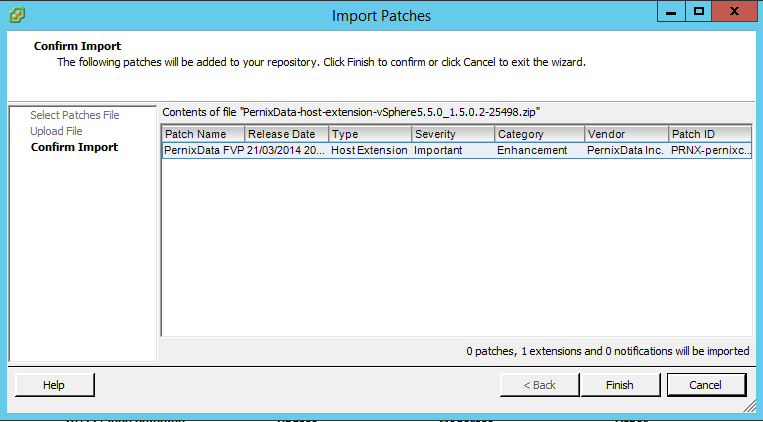Fusion Io Drivers Esxi 6
We were fortunate enough to pick up some Fusion-IO IOcache cards to be implemented in our new infrastructure. Dhoom Dhoom Just Take My Life Song Download. Installed the Fusion-IO drivers on the ESXi box and went to check the cards out. We do a “fio-status” command vis SSH connection to pull the information on the cards in each system. Towards the bottom, you can see the Firmware listed as v5.0.7 and at the time the current release was v7.1.13.


So head out to the Fusion-IO support site (), log in with your support account credentials, click on the “Downloads” button, select the card installed, select the OS being used, and look for the firmware menu. Grab the firmware file, should be a file ending with an FFF extension.
Once it’s downloaded, upload the firmware to a place the ESXi host can read from. In this case, I uploaded the firmware to a VMFS datastore so I can use the same file for every server.
At this point, we can get the update installing. To do that, SSH into the desired host (remember to have the SSH service running), and issue a “fio-update-iodrive *firmware location*” command. After about 12 minutes, the install was complete and a reboot was required. Once the ESXi host was back up, SSH in to the ESXi host and run another “fio-status” command and show that the Firmware is now indeed v7.1.13 If you happen to run into the same issue where the “Active Warnings” indicate a message of: The ioMemory is currently running in a minimal state. The problem I found was that the driver version was incompatible.
I just upgraded my DL360 G5 with 2 of those cards to the latest esxi6 and they worked fine. Afterwards, for good measure, I upgraded the fusion io drivers and the firmware to the latest. There use to be a paywall on the fusionio website for the latest drivers but now all you need to do is setup a free account,. This package includes a device driver for Fusion-io iomemory sx300 & sx350 PCIE SSD supporting Vmware ESXi. Supported systems. This package has been approved for use with the following systems: ioMemory SX300. RD450; RD650. IoMemory SX350. RD350; RD450; RD550; RD650; TD350. Supported operating.
Check out my other posting on how to update the driver. Softube Plugins Crack Macaroni here.
Firstly, obtain the drivers (and firmware!) from the vendors support portal (/) and upload them either locally to the ESXi host of for ease of access in particular if updating multiple hosts to a datastore configured as shared storage which is connected to each host. In the below example, I will be installing/upgrading to the scsi-iomemory-vsl-55L-3.2.6.12 for the High IOPS MLC Duo Adapter for IBM System x, to which these drivers are obtained from the IBM support site. Connect to the ESXi shell and invoke the esxcli command to install the offline bundle and specify the datastore path to the compressed file containing the vib. Esxcli software vib install -d /vmfs/volumes/53a94c29-0eb4806b-15c5-b8ac6f9684c3/scsi-iomemory-vsl-55L-3.2.8.1350-offline_bundle-1819180.zip Once the install has completed you will receive a similar output to the below and will require to restart the ESXi host in order to complete the installation. Installation Result Message: The update completed successfully, but the system needs to be rebooted for the changes to be effective.
Reboot Required: true VIBs Installed: Fusion-io_bootbank_scsi-iomemory-vsl_3.2.8.1350-1OEM.550.0.0.1198610 VIBs Removed: Fusion-io_bootbank_scsi-iomemory-vsl_3.2.6.1219-1OEM.550.0.0.1198610 VIBs Skipped: Following, a restart we can confirm that the install completed succesfully by invoking the following and determine the version isntalled. Esxcli software vib list grep Fusion-io To which the output should be similar to the below based on the offline bundle installed as above. Scsi-iomemory-vsl 3.2.6.1219-1OEM.550.0.0.1198610 Fusion-io VMwareCertified 2014-08-19 However, after installing the above and restarting the ESXi host I was unable to discover the devices, from the I ran retrieved the status of unknown as the driver was in minimal mode and prompted that the current firmware was not compataible with the installed driver. The firmware on this device is not compatible with the currently installed version of the driver Therefore, I was required to upgrade to the latest firmware by invoking the ‘fio-update-iodrive’ command fio-update-iodrive /vmfs/volumes/53a94c29-0eb4806b-15c5-b8ac6f9684c3/highiops_3.2.8-20140508.fff Once the firmware has been successfully upgraded a restart is required. Fct0 - successfully updated controller firmware from 5.0.6.101583 to 7.1.17.116786. Fct1 - successfully updated controller firmware from 5.0.6.101583 to 7.1.17.116786.
In some circumstances you may be required to perform low level format of the devices, this can be confirmed by again invoking the fio-status command, to which you will receive similar output to the below if required. A media upgrade is in progress.
The ioMemory will not be usable until it is low-level formatted. Perform a format by invoking the ‘fio-format’ command, which will destroy any existing data on the drive and on completion the status should be returned as healthy and in turn the ESXi host should be able to recognise the device following a final restart. Fio-format -b 512b /dev/fct0 -f fio-format -b 512b /dev/fct1 -f Reserve space status: Healthy; Reserves: 100.00%, warn at 10.00%.